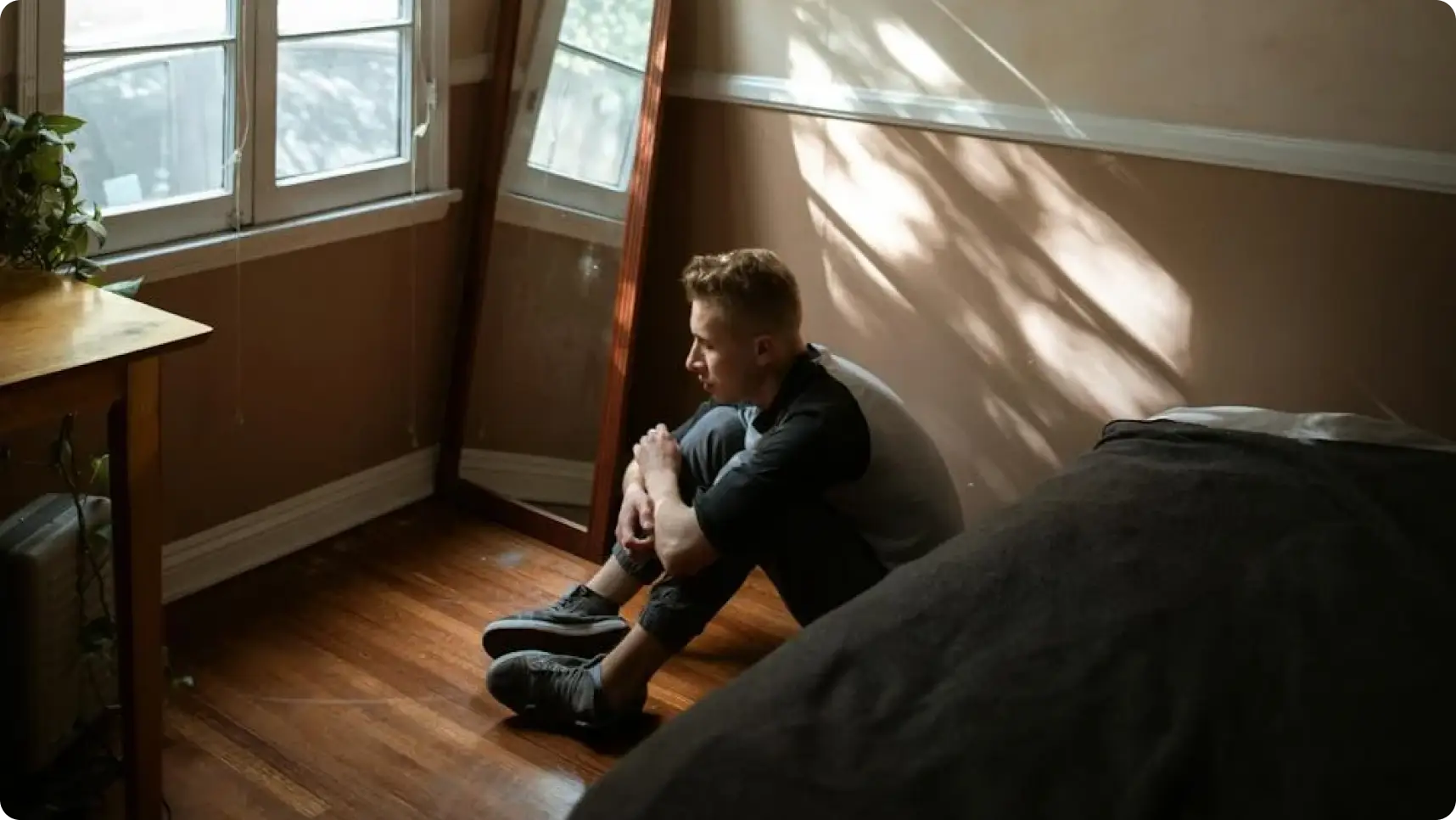Treat your PTSD, Find Peace

Many people experience traumatic events, but for some, that trauma significantly affects their stress levels and overall quality of life long after the danger has subsided
We refer to this as Post-Traumatic Stress Disorder, or PTSD. When you experience PTSD, the effects of a prior negative experience may overwhelm your body, mind, and emotions, often wreaking havoc in your nervous system. Traumatic experiences are stored in the body, resulting in changes in the brain and cascading down to changes on a cellular and chemical level. The traumatic event might have passed, but your body and mind still behave as if the traumatic event is happening now.
PTSD is very common; in fact, post-traumatic stress is a natural response to a negative experience that was too intense to be processed at the time it occurred. During the traumatic event, your fight-or-flight response kicked in to cope with the immediate situation, but your brain could not make sense of the event at the time. As a result, it stores the event as a fragmented and unfinished record that keeps reemerging because it is begging to be reprocessed and understood.
Your body and mind can heal and recover from PTSD. With the help of a PTSD therapist, the traumatic event can be processed and contextualized, allowing PTSD symptoms to be alleviated. The haunting memories can lose their intensity and grip over your present life.
What is PTSD?
PTSD can be caused by any intensely negative experience that could not be properly processed at the time. PTSD is an anxiety disorder. It often comes with feelings of stress triggered even in the absence of a present danger. Although it is common among soldiers, PTSD may occur in many other situations, including:
1
The loss of a loved one
- 2
An accident
- 3
Witnessing harm done to a loved one
4
A terrorist attack
5
A pandemic (like COVID-19)
- 6
A recession
- 7
Being victimized by rape, domestic violence or some other violent crime
Facing Your Fear with PTSD Therapy
With PTSD, there is often an urge to deny and push the traumatic event away when it resurfaces. Unfortunately, this approach rarely succeeds in truly getting rid of PTSD
Suppressing, denying, or distracting ourselves with other activities might work for a moment, but these are temporary fixes at best. PTSD and the anxiety that comes with it inevitably returns, often with even greater intensity. We refer to this dynamic as the cycle of avoidance. You cannot do away with PTSD by avoiding it, but reprocessing the incident in PTSD therapy can help you integrate it into your mind in a healthier way. PTSD therapy can help break the cycle of avoidance by changing how your mind and body relate to the traumatic event.
PTSD Treatment Approaches
While it may seem impossible to feel better, there are actually very effective approaches in PTSD therapy. We use a variety of trauma approaches including:
Eye Movement Desensitization and Reprocessing (EMDR)
Considered a highly effective PTSD treatment, EMDR aims to move traumatic memories from the part of the brain that stores traumatic material to a different part of the brain that can process it. This is done with a series of eye movements. You can learn more at the EMDR International Association.Mindfulness-Based Therapy
A type of therapy focusing on paying attention to the present moment, accepting thoughts and emotions as they are, and allowing them to exist without judgment. This therapy is gaining increasing support among mental health professionals for the treatment of PTSD.Somatic or Body-Oriented Therapy
A type of PTSD therapy that facilitates the generation of new corrective experiences that physically contradict the overwhelming sense of helplessness associated with the traumatic event.
Cognitive Behavioral Therapy (CBT)
a type of therapy which helps you learn skills to replace negative, incorrect, or irrational thoughts with more accurate, positive, and healthy thoughts.Biofeedback Therapy
this modern therapy uses sensors to measure various responses such as body temperature, respiration, heart rate, perspiration and muscle tension. Biofeedback trains your body and mind to respond to stress differently. Biofeedback therapy has been shown to succesfully decrease PTSD symptoms.
Top rated PTSD therapist treatment in New York
Choosing the right PTSD therapist can be a challenge, which is why we strive to make it as easy as possible to find top-rated PTSD counselors in New York. We are familiar with the many ways that post-traumatic stress disorder can affect a person’s life. Our PTSD therapists have considerable experience helping people overcome the distressing and debilitating symptoms of PTSD. No matter how intense your post-traumatic stress is, Manhattan Mental Health Counseling has many PTSD therapists available to help.

Wendy Pinder, LMHC
Wendy provides a safe, inclusive space where clients can heal and grow, using trauma-informed care, CBT, mindfulness, and neuroscience to address a range of challenges like PTSD, mood disorders, and ADHD while fostering long-term, transformative change.

Pragya Lamichhane, MHC-LP
Pragya uses evidence-based therapies like CBT, mindfulness, and emotion-focused techniques to empower individuals of all ages in building resilience, navigating life’s challenges, and achieving lasting personal growth through tailored, culturally sensitive support.

Simren Bhatt, MHC-LP
Simren creates a warm, empathetic space where clients can explore their unique stories, using a flexible approach to address OCD, anxiety, depression, life transitions, and cultural identity issues while empowering growth through tailored coping strategies.
Get Started Today
We’d love to hear from you! After you submit the form, you'll receive an email with a link to book a screening call at your convenience. We're excited to help you on your journey!

Find PTSD Therapists
Filter our therapists by the type of therapy you need.


